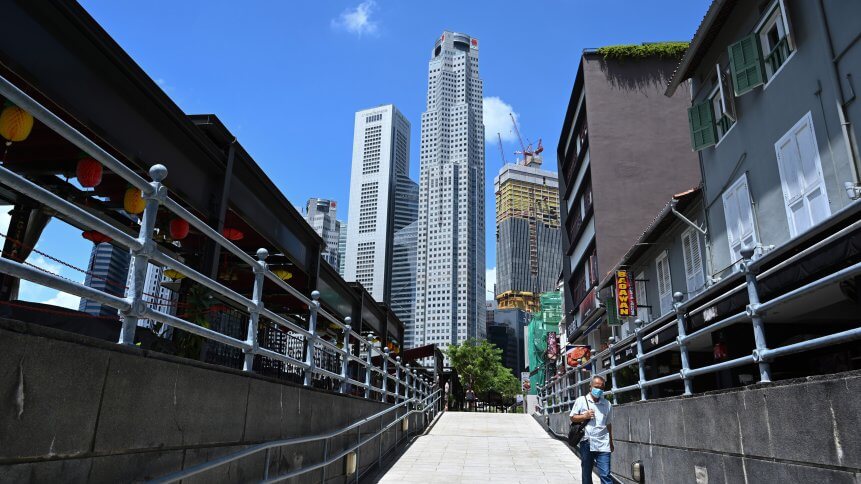Why we might not be ready for smart cities

- Cities around the world are embracing smart city technology
- But a recently-abandoned Google project highlights an ongoing privacy debate
- Economic uncertainty has brought renewed attention to this concern
Love the city life or not, urban populations continue to expand, in fact, according to the World Health Organization (WHO), they will grow by an estimated rate of 1.63 percent each year until 2025.
Today, more than half the world’s population live in major cities but by 2025 our urban centers will be home to more than two-thirds (68 percent) of our citizens. The question as to how to sustain this rapid urban population growth has led to the rise of so-called ‘smart cities’ to help alleviate the pressures on a city’s infrastructure that increasing population sizes undoubtedly bring.
Boom of the smart city
Smart cities, in a nutshell, rely on intelligent, interconnected technologies and support systems to improve the overall quality of life for a town’s residents. The organizations working on bringing these technologies to fruition are concerned with improving liveability in a variety of ways, such as saving time when traveling or looking for parking, or enabling better air quality within the city, or finding more efficient energy consumption methods.
Aspects of smart, connected cities are already a reality in many parts of the world, with authorities realizing that such initiatives might be key to long-term sustainability. In Australia, the city of Adelaide received funding for at least 100 IoT-enabled sensors to secure public spaces such as parks. Hong Kong is providing electronic IDs to all its residents which can be used to perform online transactions with a unique electronic identifier, building out the island’s electronic infrastructure.
Las Vegas in the US announced that US$500 million had been allocated for smart city initiatives over the next seven years, showing just how serious governments are getting about digitally transforming their townships – so much so that PwC estimates the market for developing smart city solutions and integrated services represents a US$2.5 trillion business opportunity for companies developing those solutions.
Privacy issues and economic uncertainty
Despite all the positive headway, the controversial case of Google’s abandoned smart city development in Toronto highlights lingering concerns over privacy issues, as well as the pursuit of hefty technological investments – over other areas such as welfare, for instance – during a time of economic uncertainty.
Initially a project to facelift a rundown part of the city into an advanced community, Google’s Sidewalk Labs unit initially partnered with a local governmental agency Waterfront Toronto to build offices, residences, and a school – and to also build sensors into the streets that would monitor traffic and warn pedestrians of risks, as well as plans to heat the streets so that they would melt ice and snow upon contact in chilly Toronto.
As amazing as those innovations sounded, some residents of the community took issue with issuing Google, possibly the largest data-consuming organization in the world, with a high degree of access to data they could obtain through the proposed technology.
The privacy debate mirrored conversations in other countries which had been seeing increasingly ‘smart’ cameras and sensors being installed by a combination of public and private entities. The past few years have seen escalating use of facial recognition technology, AI-driven behavioral recognition technology, and other developments that some view as accelerating a “Big Brother” surveillance culture.
Sidewalk Labs chief executive Dan Doctoroff said Google was not trying to monetize residents’ private information, but regardless, the present economic limbo brought on by COVID-19 meant that the waterfront smart project was no longer financially viable to its investors.
“As unprecedented economic uncertainty has set in around the world and in the Toronto real estate market, it has become too difficult to make the project financially viable without sacrificing core parts of the plan,” Doctoroff said in a statement.
Others, like former BlackBerry chief executive officer Jim Basillie, hailed the shutdown announcement as a “major victory for the responsible citizens who fought to protect Canada’s democracy, civil, and digital rights […] Sidewalk Toronto will go down in history as one of the more disturbing planned experiments in surveillance capitalism.”
No doubt the economic slowdown prompted by the coronavirus will put a dent in many municipalities’ plans to invest in smart city architecture in the near term, and will give both the proponents of smart city advancements, and the detractors who view aspects of it as invasive, plenty of time to debate its pros and cons.
What is certain is that adopting digital solutions at scale will play a large role in determining the future makeup of society, and both sides should keep this reality in mind when contemplating smart city developments.










